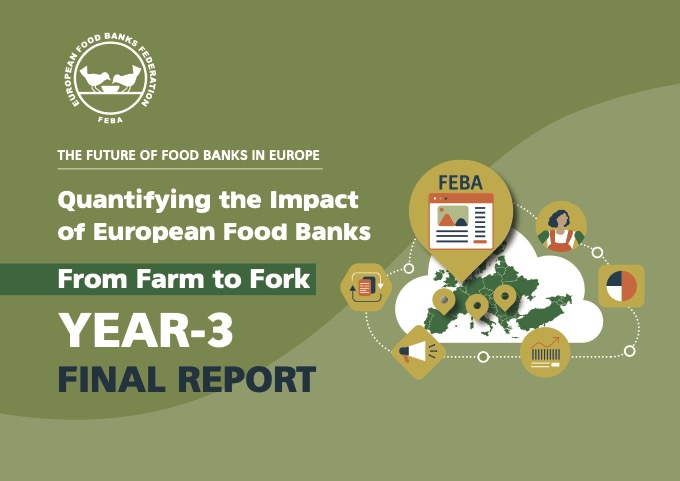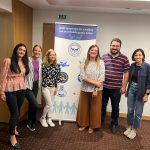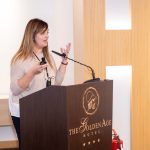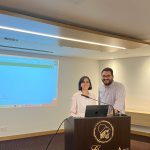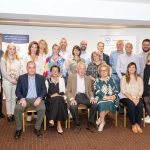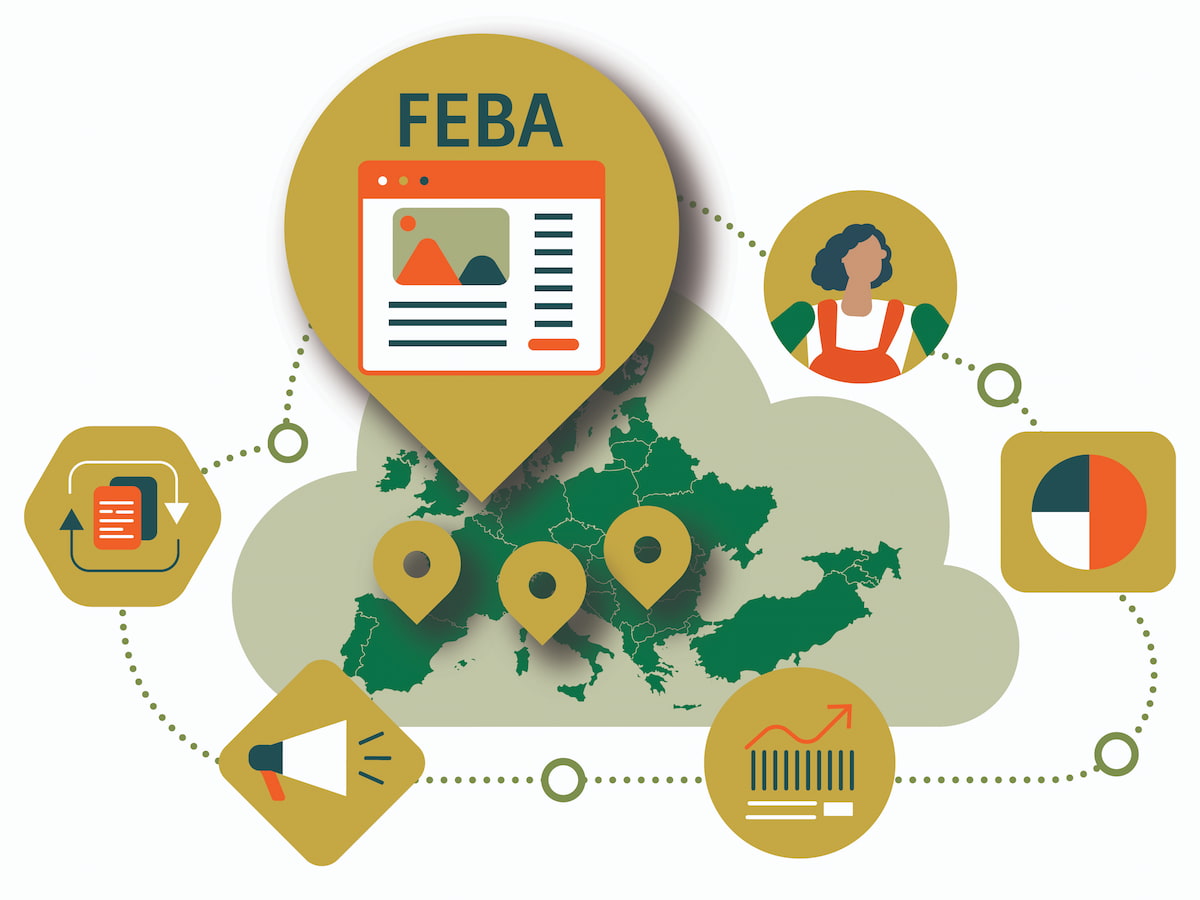
Further developing the project taking into account the recommendations made by its members, FEBA has identified two macro objectives, which will serve as focal points for the conduct of the activities characterising YEAR-3.
- 1. Improvement of collection, analysis, and dissemination of data on the activities of FEBA Members; and
- 2. Enabling the use of the online Observatory on Food Donation at regional/local level.
Pursuing these objectives, the project management will follow an agile approach coined by the regular involvement and exchange with FEBA Members to gather feedback and track the progress.
Kick-off meeting
- 20 February 2023
- Online
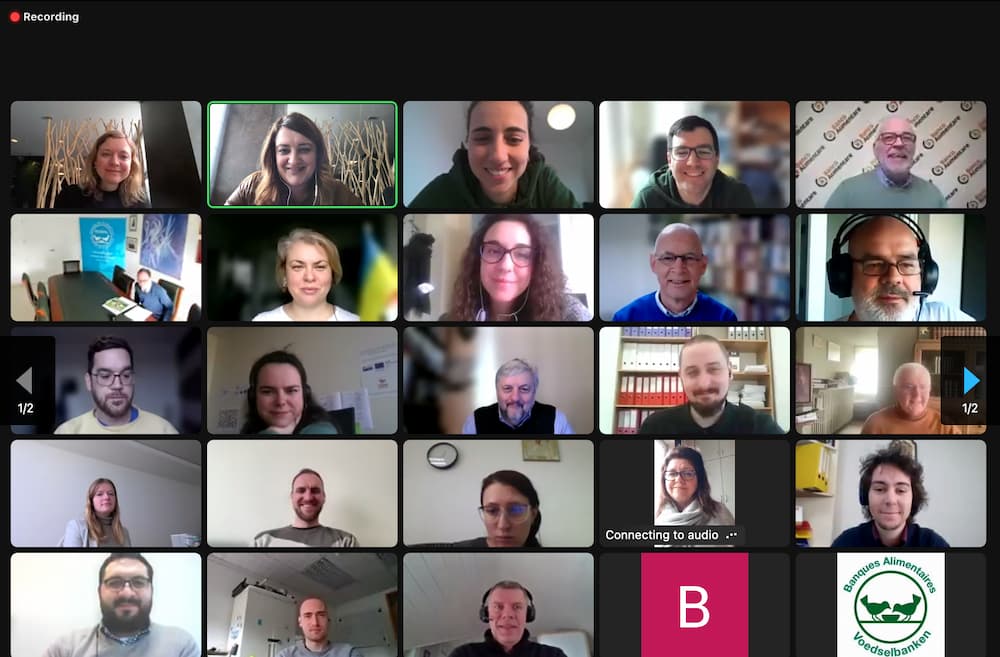
FEBA invited its entire membership to an online meeting with a two-fold purpose: taking stock of the achievements of YEAR-2 and giving an outlook to the goals and activities envisaged for YEAR-3, which are closely released to the feedback received from the members. 37 participants from 24 countries joined the session, during which the improved data collection platform and its new features have been presented in a live demo, thus giving guidance to the attendees on how to navigate on the website. During an open and lively discussion, the Food Bank representatives then had the opportunity to exchange their views and pose questions to the Project Team comprising FEBA and external experts.
Mid-Term Summit
- 24-26 May 2023
- Dublin (Ireland)
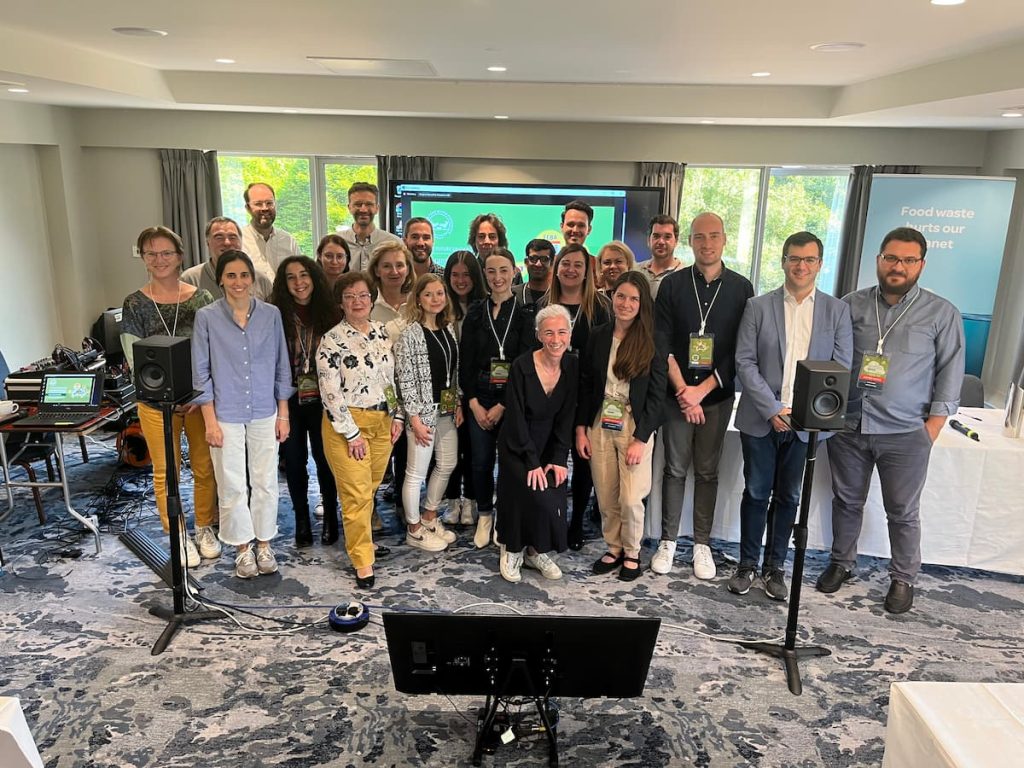
From 24 to 26 May, FEBA invited its members to Dublin to participate in the Data Collection YEAR-3 Mid-Term Summit organised together with FoodCloud (FEBA Member in Ireland). 24 Food Bank representatives from 13 countries attended the meeting onsite, contributing with their expertise and feedback to lively discussions and fruitful outcomes.
The meeting was opened with some introductory remarks delivered by Rikke Karlsson (DG SANTE, European Commission) who underscored the importance of collecting quantitative and qualitative information to successfully implement EU policies on food loss and waste. Following that, the state-of-the-art of FEBA’s Data Collection project was focused on recapping, particularly, achievements during the first half of 2023. Jonathan Bennet (General Mills) highlighted in a video message the company’s point of view regarding the relevance of gathering reliable and coherent data before FEBA took the floor to present the aggregated impact of the network in 2022.
The objective of the second day of the summit was to zoom in on best practice examples of FEBA Members concerning the digitalisation of their operations. Nine case studies have been presented by attendees from Albania, Belgium, France, Germany, Italy, Ireland, the Netherlands, and Serbia, who introduced the systems used and provided details about the characteristics, the entry, and the dissemination of data collected as well as outlined related challenges and opportunities. Moreover, the participants learned about the endeavours of FoodCloud to quantify the environmental and social impact of the Food Bank’s activities and discussed the relevance of doing so.
To complement the meeting with practical insights, a visit to the FoodCloud hub enabled the meeting attendees to learn how warehouse data can be captured in reality.
Launch of pilot test with Food Bank Greece
- 7-9 June 2023
- Athens (Greece)
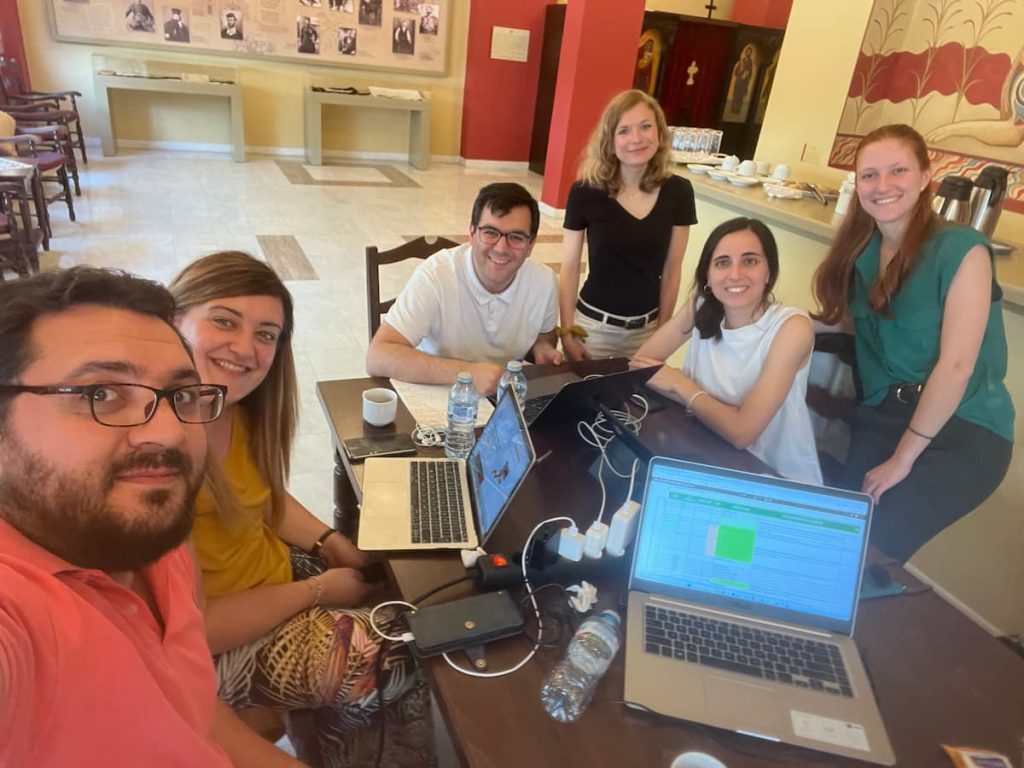
The second half of YEAR-3 of FEBA’s project Quantifying the Impact of European Food Banks has been initiated in Athens (Greece) with a meeting of the Project Team and Food Bank Greece. From 7 to 9 June, a series of working sessions were organised, focusing on different topics but all geared towards the objective of adapting the online Observatory on Food Donation, which FEBA launched in 2020 to collect valid and accurate data from its members coherently and securely, for the use at the regional/local level.
As the pilot country for this endeavour, Food Bank Greece gave an overview of the activities of the seven Food Banks belonging to its network and explained the requirements that the online data collection platform should fulfil to facilitate the entry of information by local co-workers. Based on this, the Project Team discussed the technical features that will be developed to cater to these needs. Additionally, the related process of training the local Food Bankers to expand technical skills and foster digital transformation3
Knowledge-sharing and training session for local Greek Food Banks
- 30-31 October 2023
- Athens (Greece)
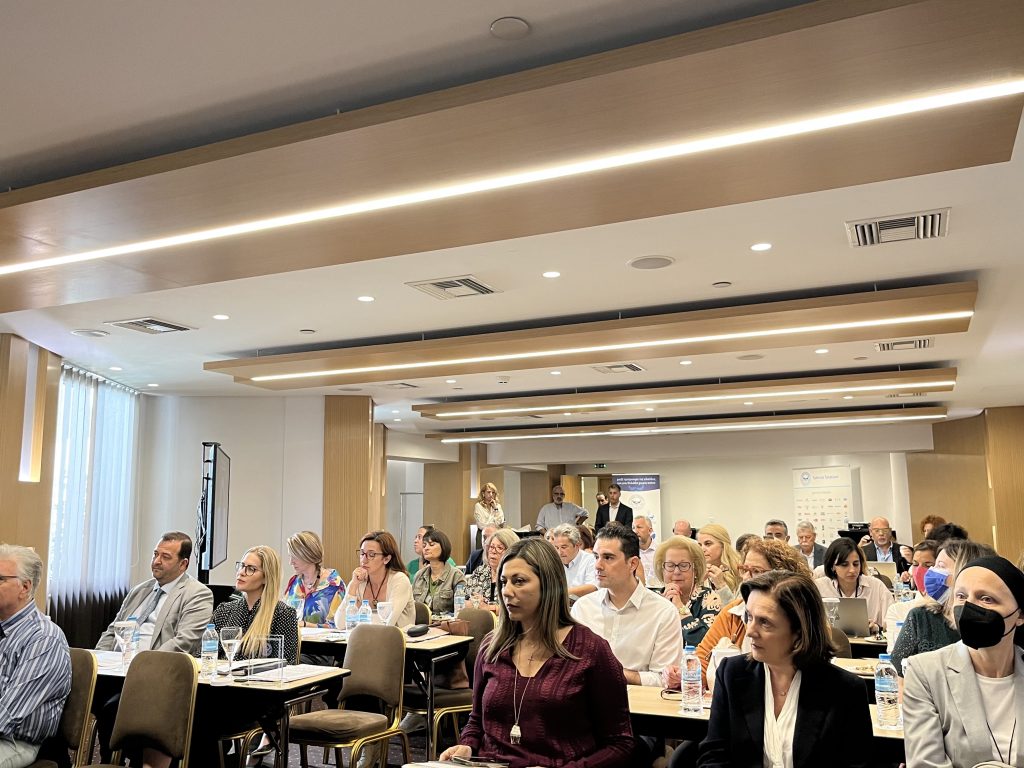
On 30 and 31 October 2023, Food Bank Greece held its Annual Meeting in the capital Athens, bringing together over 40 participants from the seven local Food Banks, public authorities, partner companies, and affiliated organisations.
In the framework of its project “Quantifying the Impact of European Food Banks. From Farm to Fork“, which is developed in collaboration with TechSoup Italy, FEBA contributed to the meeting focussing on two objectives. Besides raising awareness of the importance of gathering coherent, consistent, and accurate data, the local Food Banks have been engaged in an interactive training session to introduce them to the online Observatory on Food Donation. This activity enabled familiarising them with the tailor-made online platform, which they will use to communicate their 2023 statistics to the national Food Bank and, therewith, feed the database FEBA sets up for its 30 members annually.
The conduct of the pilot test offers a variety of opportunities for the actors involved. While it facilitates the communication of data from the local Food Banks to the national one, the online platform further offers data visualisation tools and serves as a cloud for historical information. In addition, it strives to foster the collection of coherent and reliable numbers, thereby improving the quality of data gathered by FEBA at the European level.
YEAR-3 Wrap-Up Meeting
- 30 November 2023
- online
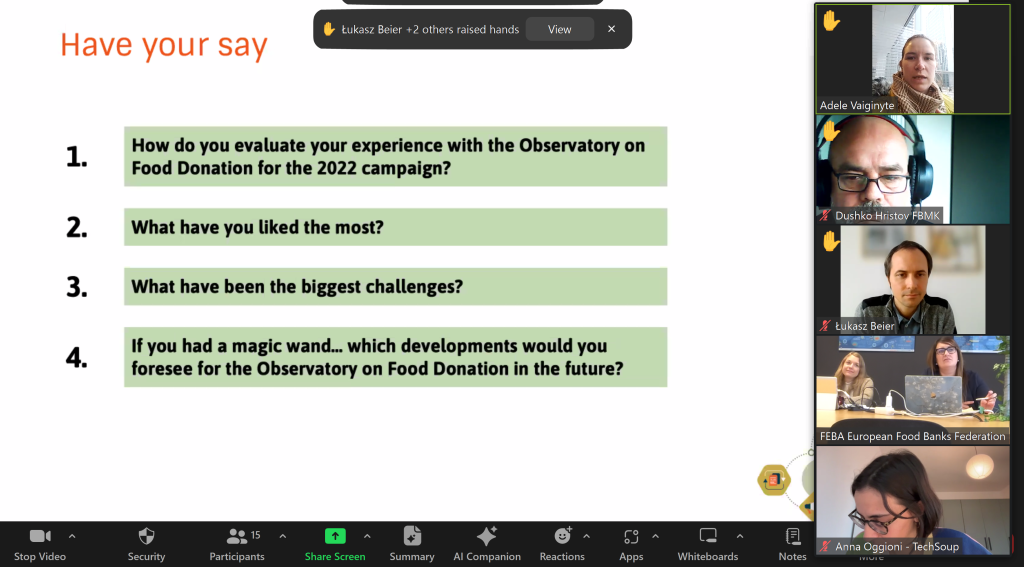
FEBA invited its members for an interactive Wrap-Up Meeting, which pursued a variety of objectives. The session envisaged taking stock of the achievements of the last 12 months, sharing insights of the pilot test with Food Bank Greece during the second semester, and collecting feedback and recommendations. Moreover, an outlook on the activities foreseen for YEAR-4 of the FEBA Data Collection Project starting in January 2024 has been given.
Over 25 participants including representatives from 20 FEBA Members enriched the session with their comments and contributions.

Funded by the European Union. Views and opinions expressed are however those of the author(s) only and do not necessarily reflect those of the European Union or the European Health and Digital Executive Agency (HaDEA). Neither the European Union nor the granting authority can be held responsible for them.
With the support of



